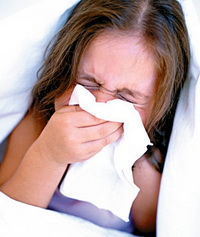Poorer Countries to Get H1N1 Vaccine from WHO
Monday the World Health Organization said, it hopes to start delivering 60 million doses of H1N1 vaccine to poor countries in November as part of an effort to protect their fragile health systems from the pandemic.

WHO wants to provide doctors and nurses in about 100 countries with vaccines over the coming four to five months, using a stockpile provided by drug companies and donor countries, said vaccine chief Marie-Paule Kieny.
"The primary target for this round of distribution is health care workers," she told reporters in Geneva.
WHO has warned that poor countries risk being overwhelmed as health workers fall ill and are unable to care for patients with other diseases. Some spare doses could also be used to protect vulnerable groups such as pregnant women and those with lowered immune systems, but further donations are still required, she said.
"In developing countries the health system is much weaker, so therefore we wanted to prepare for the upcoming wave of H1N1 infection," Kieny said, referring to the medical term for swine flu, The Associated Press reports.
In the meantime, a number of rich nations have also pledged to donate 10% of their vaccine purchases to poorer countries.
The latest figures reported to the WHO suggest more than 4,500 people worldwide have died from swine flu.
But most of the hundreds of thousands of people who have contracted the illness around the world have experienced only mild to moderate symptoms.
Countries including China, Australia and the United States are reported to have begun mass vaccination programmes after scientists worked flat out to develop a vaccine, BBC News reports.
It was also reported, the good news is that for the first time in more than 50 years there was made a vaccine against a pandemic strain of influenza before the onset of winter, when lower temperatures and humidity allow the virus to spread more easily. Distributing this vaccine to those who need it most — pregnant women, health care workers, children older than six months and people with compromised immunity — will be difficult enough. But the task is made harder by the various myths, spread on TV talk shows and Web sites, suggesting that Americans have more to fear from the vaccine than from the deadly disease it prevents, The New York Times reports.
Subscribe to Pravda.Ru Telegram channel, Facebook, RSS!




